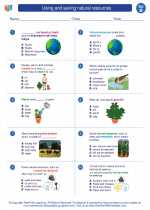Nucleic Acids
Nucleic acids are biopolymers, or large biomolecules, essential for all known forms of life. They are composed of monomers called nucleotides.
Structure of Nucleic Acids
Nucleic acids are composed of three main components: a pentose sugar, a phosphate group, and a nitrogenous base. The two most common types of nucleic acids are DNA (deoxyribonucleic acid) and RNA (ribonucleic acid). Both DNA and RNA are composed of nucleotides, but they differ in their sugar and certain base composition.
DNA Structure
DNA is composed of a double helix structure, with two strands running in opposite directions. The nucleotides in DNA contain the sugar deoxyribose, and the nitrogenous bases adenine, thymine, cytosine, and guanine.
RNA Structure
RNA is typically single-stranded, and its nucleotides contain the sugar ribose and the nitrogenous bases adenine, uracil, cytosine, and guanine.
Functions of Nucleic Acids
Nucleic acids play crucial roles in the storage and expression of genetic information. DNA stores the genetic instructions for the development and functioning of living organisms, while RNA is involved in protein synthesis and gene expression.
Study Guide
- What are the three main components of nucleic acids?
- What are the two types of nucleic acids and how do they differ?
- Describe the structure of DNA.
- Describe the structure of RNA.
- What are the functions of nucleic acids?
[Nucleic Acids] Related Worksheets and Study Guides:
.◂Science Worksheets and Study Guides Second Grade. Using and saving natural resources

 Worksheet/Answer key
Worksheet/Answer key
 Worksheet/Answer key
Worksheet/Answer key
 Worksheet/Answer key
Worksheet/Answer key
 Vocabulary/Answer key
Vocabulary/Answer key
 Vocabulary/Answer key
Vocabulary/Answer key
